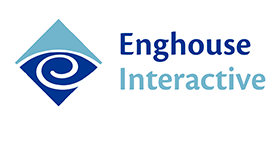Helen Billingham of Enghouse Interactive introduces a migration strategy for customer facing businesses that are considering a move to the cloud.
Organisations of all shapes and sizes are looking to migrate from traditional PBX telecoms platforms to unified communications (UC) environments, integrating their contact centre for greater collaboration. The market is growing robustly. A recent report by Global Market Insights estimated the Unified Communications and Collaboration (UCC) market size at over US$32 billion in 2018, with a CAGR of 8% from 2019 to 2025.
The rationale for businesses to move to UC environments is certainly clear. Businesses increasingly understand the limitations of the traditional PBX model around scalability, complexity and having a single point of failure. They increasingly appreciate the benefits of moving to UC around faster return on investment, greater collaboration, lower total cost of ownership; streamlined operational processes and enhanced productivity. And they see all this as key to their digital transformation.
They know too that in the context of the contact centre, the enhanced collaborative functionality that migration can deliver will allow them to provide a consistently outstanding customer experience around the clock, make life easier for hard-working agents and employees and sweat their investments and save money on management.
Yet while many customer-facing businesses have undertaken the journey to unified communications and collaboration, many still hold back. Some have installed solutions like Microsoft Skype for Business or even Microsoft Teams but are running them in the background and are still using traditional PBXs as their primary telecoms switch.
So what is deterring these organisations? Some pause on their journey waiting for new solutions or upgrades to be introduced by the leading platform vendors. Many others are concerned about the risk involved in migrating systems and moving from old infrastructure to new. And that is making it difficult to set out on the migration path at all. They have ruled out a big bang approach due to sweating down existing assets and they want flexibility and choice across the whole journey.
That’s why they need the peace of mind and reassurance that comes from working with solutions providers and implementation and support partners that are vendor and platform-agnostic; can integrate with all leading UC platforms – from Microsoft to Avaya to Cisco – and have migration at the heart of their strategy. Working alongside its partners, Enghouse Interactive is well-suited to achieve all this.
Driven by the need to achieve digital transformation and the desire to use it to deliver enhanced customer engagement, more and more businesses are looking to work closely with customer communications experts to help them assess their possible migration paths, choose the best option, then transition them smoothly and with minimal disruption to their existing operations.
The approach needs to be open and flexible. Whether organisations are looking to move from premise to premise, or premise to cloud, or thinking about migrating from one vendor to another, or one UC product to another within a single vendor environment, solutions providers and their channel partners need to be able to take customers on their digital transformation-driven journey and ensure they reach their desired end destination.
That removes some serious headaches for customer-facing organisations, of course. Instead of fretting and worrying about their communications journey, they can let their solutions and implementation provider partners concern themselves with building a UC environment and connecting the contact centre. That in turn leaves the business itself free to concentrate on its overall network environment strategy, content in the knowledge that its migration journey to digital is being managed and de-risked.
For this reason, many business are choosing to implement a phased migration for its customers. In any migration to a new telecoms infrastructure it is important to have the old and the new platforms running simultaneously (and both connected) so that if a technical problem occurs with the new system, or if there is a mis-configuration, for example, agents can be quickly, although temporarily, moved back to the old infrastructure desktop.
Rather than moving the whole operation over to the new system straightaway, the organisation concerned could move a single department over initially: the IT helpdesk, for example, and then if all goes well, move another shortly thereafter. If something goes wrong they can simply move that individual department back, effectively de-risking and removing the friction from the whole process.
It is important to remember, though, that the migration journey is not just about infrastructure, essential though that is. Scalability is key in supporting the overall approach and ensuring that the business always has the right level of capability to support its needs at any given time. A fully scalable migration strategy can support a modular by design approach.
As the organisation grows, new channels, apps and bots, for example, can be added as and when required. It is also crucial, however, that the journey can go forward and back – and with this kind of methodology, businesses can scale back their capability when strategic drivers or external circumstances dictate.
This blog post has been re-published by kind permission of Enghouse Interactive – View the Original Article
For more information about Enghouse Interactive - visit the Enghouse Interactive Website
Call Centre Helper is not responsible for the content of these guest blog posts. The opinions expressed in this article are those of the author, and do not necessarily reflect those of Call Centre Helper.
Author: Enghouse Interactive
Published On: 5th Jul 2019
Read more about - Guest Blogs, Enghouse Interactive






 Enghouse Interactive delivers technology and expertise to help bring your customers closer to your business through its wide range of customer contact solutions.
Enghouse Interactive delivers technology and expertise to help bring your customers closer to your business through its wide range of customer contact solutions. 







